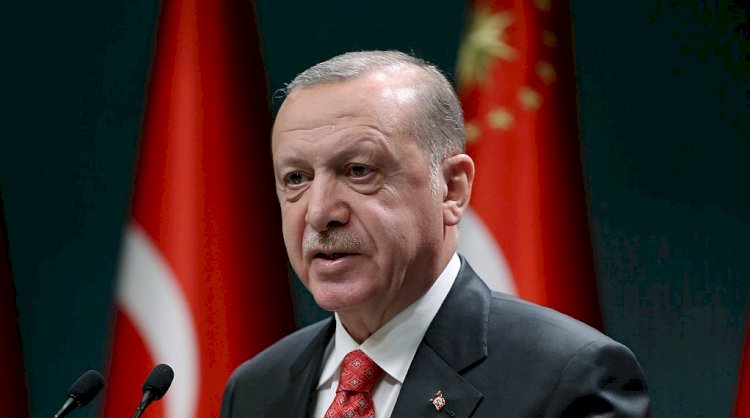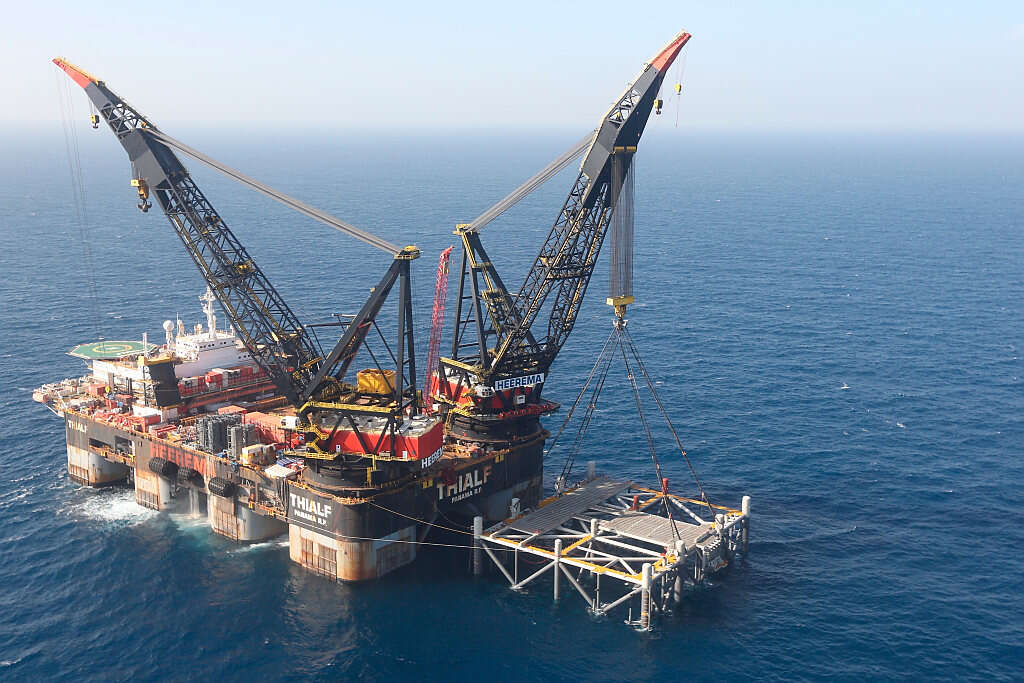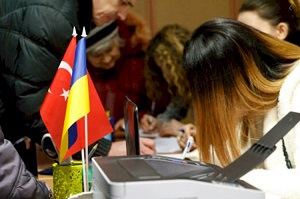Getting inside Erdogan's head
Will the Turkish bank be investigated?

Getting inside Erdogan's head
After years of insulting Israel and funding Hamas, Turkish President Recep Tayyip Erdogan is making overtures of reconciliation. What does this have to do with the Muslim Brotherhood and US President-elect Joe Biden, and how seriously should Israel take him?
Until recently, Erdogan was still making a mockery of the reconciliation deal Turkey and Israel signed in 2016, which was supposed to resolve the conflict over the Mavi Marmara incident and put Turkish-Israeli relations back on a normal path. Erdogan compared Israel's treatment of the Palestinians to how the Nazis treated the Jews; said the Israeli government was "following in Hitler's path," and even said that "filthy Zionists are polluting the Temple Mount."
Two years ago, after the US Embassy was relocated to Jerusalem and Israel bombed Hamas targets in the Gaza Strip, Erdogan expelled Israeli Ambassador to Ankara Eitan Na'eh and recalled his own envoy from Tel Aviv. And now, in the past few months, we're seeing him reverse course. Erdogan is seeking closer ties with Israel and sending emissaries, hints, and messages that leave no room for doubt about his intentions. Moreover, after a long sulky period, Turkey is sending a new ambassador to Israel – Ufuk Ulutas, a close associate of Erdogan's. Ulutas, too, has previously denied Israel's right to exist on "Palestinian land" and made extremely hostile statements against it.
Turkey is even accepting Israel's recent normalization agreement with Morocco with surprising equanimity. Only a few months ago, it attacked similar agreements between Israel and the United Arab Emirates. Reports about a series of meetings between Mossad head Yossi Cohen and head of Turkey's intelligence services Hakan Fidan also indicate how serious Erdogan is about Israel.
So what has happened to Erdogan? Senior officials in Jerusalem think that the about-face in his approach can be explained by the result of the US presidential election. Erdogan has a fractured relationship with US President-elect Joe Biden, and the Turks believe that the way to the White House goes through Jerusalem.

"What dictates relations between Israel and Turkey is how good relations are between the US and Turkey," explains Dr. Hay Eitan Cohen Yanarocak, an expert on Turkey with the Jerusalem Institute for Strategy and Security and the Moshe Dayan Center for Middle Eastern and African Studies at Tel Aviv University.
According to Yanarocak, "The Turks are afraid of harsher American sanctions and they want help from the Israeli and Jewish lobbies, which they see as having a lot of sway in Washington. Their assumption is that renormalization with Israel will be a trust-building step for Washington, a kind of proof of good behavior."
A week or so ago, Erdogan advisor Mesut Casin announced that if Israel took a step in Turkey's direction, Turkey would take two steps toward Israel.
Yanarocak says that he knows Casin, who is a secular military man, not an Islamist. "He was my professor of international law in Istanbul," he says, adding that Israel should take what Casin says seriously, as well as what Erdogan himself is saying.
This week, the researcher points out, Erdogan was asked by a journalist whether it was true that Turkish-Israel relations were warming up, and Erdogan expressed a desire for better ties despite his difficulty with "Israel's policy toward the Palestinians" and "with the people at the top in Israel."
"When Erdogan says that, it's a lot more than a hint," Yanarocak explains.
Why is Erdogan so scared of the man who will soon be in the White House? Biden has long-standing issues with Erdogan, and doesn't bother to hide them. The president-elect has long opposed Turkey's occupation of Northern Cyprus. Biden has declared multiple times that if elected president, his administration would officially recognize the Armenian genocide the Turks perpetrated in the early 20th century. Unlike Trump, Biden is showing much less patient for the channel Erdogan's Turkey, which is still a NATO member, has opened up to Russian President Vladimir Putin, as well as its operation of the Russian S-400 missile defense system, or for the Turkish-Iranian links fostered by the Russians. Biden is particularly outraged over the Turkish invasion of northern Syria and their attacks on the Kurds there. As president, Biden is expected to renew US support for the Kurds, whom the Obama administration supplied with weapons in their fight against the Islamic State.
Will the Turkish bank be investigated?
Not only is Erdogan well-versed in Biden's positions, the two have met in person four times. He also remembers Biden's remarks in the presidential race, when he talked of nothing less than ousting Erdogan with the help of the Turkish opposition – not a coup, but democratic elections. Now Erdogan is afraid that Biden, unlike Trump, will not continue to delay a criminal investigation into the government-run Halkbank, which allegedly tried to skirt US sanctions on Iran. The investigation could go to the very top of the Turkish pyramid, including Erdogan himself.
But Biden isn't Erdogan's only problem. The Turkish president finds himself increasingly isolated. Trump, whom he will miss, nevertheless sanctioned Turkey in his final days in the White House. He kicked Turkey out of a plan to build F35 stealth fighters and banned it from selling any defense equipment that contains American parts to other countries.
Subscribe to Israel Hayom's daily newsletter and never miss our top stories!
Erdogan is afraid that Biden will tighten the sanctions. Meanwhile, he is fighting with both the UAE and Saudi Arabia, which is unofficially boycotting him. The boycott is hurting Turkey at a time when the Turkish lira is tanking and inflation and unemployment are sky-high. Erdogan isn't even in contact with Egyptian President Abdel Fattah el-Sissi, who unceremoniously outlawed the Muslim Brotherhood.
In addition to all these troubles, the European Union is considering sanctions of its own against Ankara over its oil drilling in the eastern Mediterranean Sea, which is damaging Cypriot and Greek territorial waters, as well as trespassing on their sovereignty.
Israel is thinking carefully about how to response to Turkey's new overtures. Turkey's semi-formal offer of an agreement on shared maritime borders with Israel has been declined for now, and there isn't much chance it will be accepted. The proposal came in the form of an article by retired Turkish Admiral Cihat Yayci, another Erdogan associate, which was published in the monthly journal Turkeyscope, which Yanarocak edits.
In the article, Yayci suggests connecting Israel and Turkey's maritime borders, at the expense of Cyprus, and offers another "bonbon" – connecting the Israeli pipeline that is slated to export natural gas to Europe to the existing Turkish pipeline, from whence it would flow into the Trans-Anatolia pipeline to Europe.

That would indeed be less expensive for Israel than the costs of the initiative Israel is already committed to as part of a deal it made with Greece and Cyprus at the start of the year, under which a 1,900-km (1,180 mile) pipeline will be built from Israel to Cyprus and from there to Crete, Greece, and Italy by 2025 at a cost to Israel of $6.86 billion.
Israel, which has an obligation to its new Mediterranean partners, is unlikely to take the bait, but Yanarocak thinks that "the very proposal and the publication of it in Turkey – even though it was clear to the Turks that Israel wouldn't accept it – is meant to prepare Turkish public opinion for renewed ties with Israel."
Normalization, with a footnote
The current US sanctions could be very painful for Turkey, Yanarocak explains.
Yanarocak mentioned that some employees of the US Embassy in Turkey are still in jail for their alleged attempts to participate in the failed coup against Erdogan.
Yanarocak thinks that the new Turkish ambassador will arrive in Israel a month or two after Biden takes office, but warns about how honestly Turkey desires renewed ties. "They could maintain contact with Hamas, but have to stop their support for the organization and the quarter they provide for [Hamas members] planning terrorist actions from within their borders. That is unacceptable. We also need to arrive at clear understandings with the Turks that the harsh verbal attacks against Israel will stop. Turkey, which in 1949 became the first Muslim country to recognize Israel, is an asset, and we have no interest in making it an enemy. So true normalization is definitely appropriate, but after what we've been through with Turkey these last several years, we need to exercise caution."
Turkish or Islamist?
There is another possibility, a more explosive one. Pinhas Inbari of the Jerusalem Center for Public Affairs, was recently informed by his sources in the Persian Gulf that behind closed doors, something revolutionary is taking place: Turkey and Saudi Arabia are in contact about Turkey ousting the Muslim Brotherhood in exchange for broad Sunni reconciliation between Turkey, Saudi Arabia, and Egypt.
According to Inbari, the Muslim Brotherhood leadership in Kuwait "was afraid they would be arrested and fled to Turkey, but then rushed back and preferred to sit in prison in Kuwait than live under Erdogan. Senior members of the Muslim Brotherhood leadership discussed the crisis between the brotherhood and Erdogan."
Q: What caused the crisis?
Inbari: "At the moment, it's unclear. According to them [the Muslim Brotherhood], Erdogan recently talked to Saudi King Salman and promised him that he would take action against the brotherhood, who we know are the root of the problem between their patron, Erdogan, and Saudi Arabia, which is afraid of them."
Inbari suggests cautiously that there might be corroboration for these reports from Kuwait, among other things in how Erdogan responded to the agreement ending the war between Armenia and Azerbaijan.
"In his victory speech, Erdogan, who supported the Azeris, supposedly presented areas of Iran as Azeri territory and part of Azerbaijan. The Iranians didn't like that at all. All of a sudden, Erdogan sounded like someone who was casting Turkey as the guardian of all Turkmen people – meaning Turks living outside the Turkish borders."
Inbari goes on to explain that in northern Iran, "there is a large Turkish-speaking minority, and the Iranians were shaking with anger. They responded by publishing a map from the time of the Persian Empire that included parts of Anatolia – in modern-day Turkey – within the borders of the Persian Empire. One conclusion that can be drawn from that is that Erdogan is looking for a new card to play instead of the Islamist one – the Turkish card."
If that is indeed the case, Inbari says, "Erdogan is now saying to Israel: I'm Turkish before I'm an Islamist, let's renew the good relations we had when Turkey was first of all Turkish."
"Could that be?" the researcher asks. "I wouldn't rule it out. But of course, I'd look at it very carefully, and be very careful not to hurt our ties and deals with Cyprus and Greece and of course insist that the Turks stop helping Hamas and allowing them to operate against us [Israel] from Turkish territory."
Indeed, it is difficult to image Israel giving up membership in what Ankara sees as the anti-Turkish EastMed Gas Forum – which only two months ago was formed as a regional intergovernmental organization and includes Egypt, Italy, Greece, Cyprus, Jordan, and the Palestinian Authority – merely to take Turkey up on its offer. It's even harder to imagine Israel once again believing another hollow Turkish promise to put a stop to Hamas activity within its borders.
In addition to a long list of terrorist attacks and attempted terrorist attacks against Israel that Hamas executed from Turkey in recent years, researchers from the Meir Amit Intelligence and Terrorism Information Center have outlined Turkey's place as a base from which Hamas is handling its financial activity. Similar information has recently been published by the US Treasury, which stated that Hamas activists and sympathizers in Turkey raise funds, transfer them to [Hamas'] military wing in the Gaza Strip, fund terrorist organizations in Judea and Samaria, and operate companies in Turkey that launder terrorist funds.
According to the Americans, the main source for the money sent to Hamas via Turkey (and sometimes Lebanon) is Iran. The Americans believe that Iran's Quds Force handles the money transfers to Hamas, and that the process involves various money changers based in Turkey.
Will Turkey, which is trying to make nice with the Americans, take real action to stop all this? Or, like it did with the Mavi Marmara "reconciliation," make due with lip service and continue to be involved in Hamas' terrorist activity? Israel's defense establishment will be watching closely.
Getting inside Erdogan's head - www.israelhayom.com







































